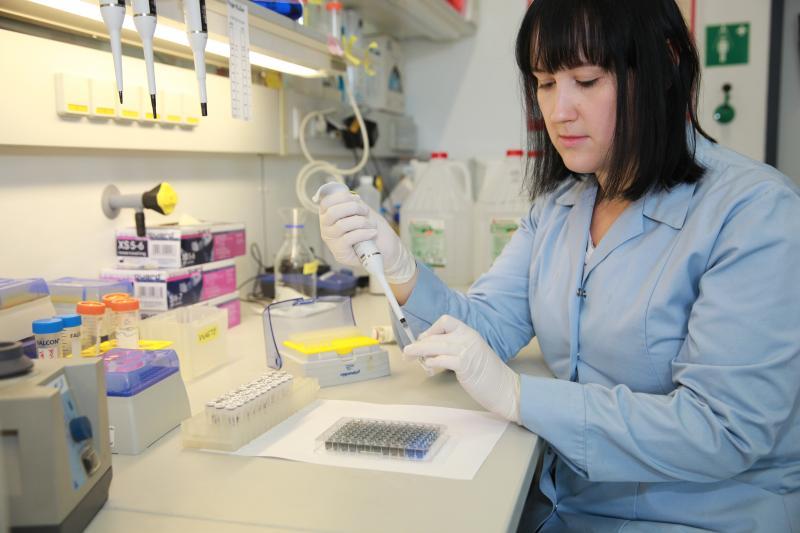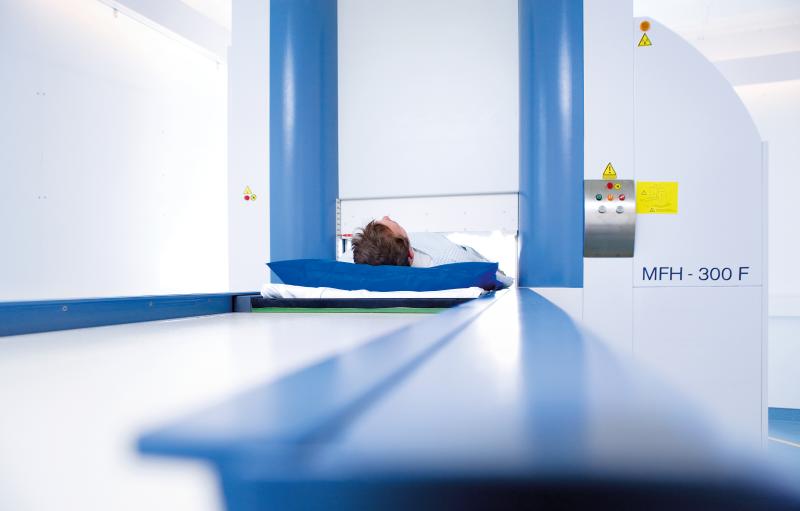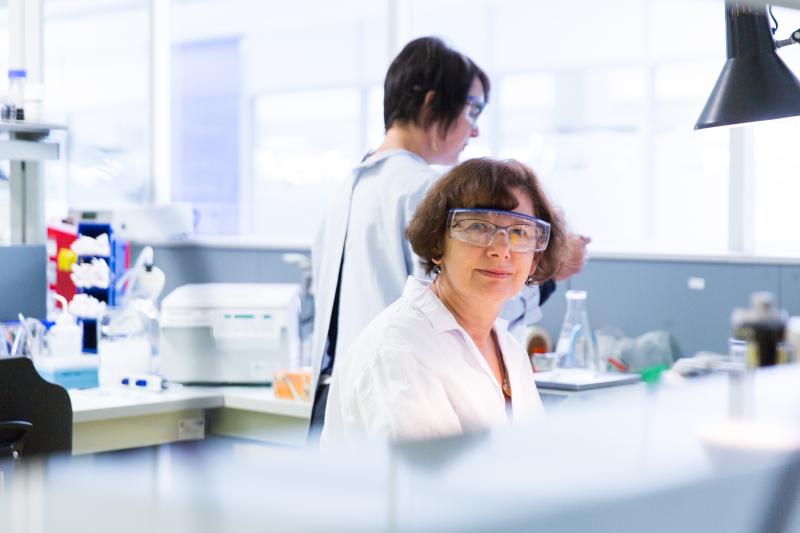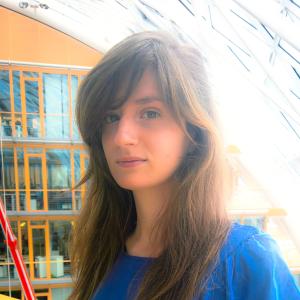Companies developing new cancer treatments have a hard time raising the money to carry out their research, so the European Investment Bank finances them
If you were trying to develop a new treatment for a rare and aggressive brain cancer that affects children, you’d want to focus hard on your research. In reality, your priority might be raising enough money to keep going.
“These innovative companies often spend half their time trying to find the capital they need,” says Yu Zhang, head of the innovation finance unit at the European Investment Bank. “Rare diseases markets are not attractive for most investors, because they do not appear as profitable as other markets.”
“But we see the worth of these research projects,” he says, “and the impact they could have worldwide.”
That’s why the EIB loaned EUR 25 million to Apeiron Biologics, a private clinical stage biotech Austrian company, supporting their financial stability. Apeiron has been working in the field of immune-oncology and it is one of a number of innovative companies financed by the EIB to develop new cancer treatments. It’s vital work, because cancer cases are predicted to increase by 68% by 2030. “This will help us achieve the next level of our development,” says Peter Llewellyn-Davies, Apeiron’s chief financial officer.

A researcher in Aperion Biologics’ Laboratories
Innovation needs more finance
Apeiron already achieved great success in bringing their new treatment for pediatric neuroblastoma to the European market in 2017.
“To develop the innovative projects we currently have in our pipeline, we need sufficient financing,” says Llewellyn-Davies.
Apeiron is currently pursuing two main approaches. First, an antibody-based approach. Therapeutic antibodies selectively bind to tumor cells which express a certain “signal”, a glycolipid GD2 on their surface. This way, the tumor cells can be destroyed by the patient’s immune system. Apeiron’s second approach is a unique, novel cellular therapy currently under clinical development. Patient’s own blood cells are “re-programmed” through inhibition of a negative regulator of the immune system (cbl-b protein). They are then reinfused into the patient and help to combat the tumor.
“We want to provide patients with effective treatments but less side effects,” says Llewellyn-Davies. “We do so by helping the immune system become reactivated and responsive to tumor cells present in the body, thus helping kill the tumor from within using our novel individual cellular immunotherapy.

A Patient undergoing treatment in MagForce’s NanoActivator
Nano-solutions from new cancer treatments
Cancer is not a disease that is easy to treat, but many innovative European companies are researching and developing new types of treatments to increase survival chances and decrease side effects. Take MagForce, a German company that is among the early developers of nanotechnology-based new cancer treatments.
The technology is based on an injection of iron oxide nanoparticles into the solid tumor. Then, MagForce’s therapy device, the NanoActivator, is used to treat the affected area with an alternating magnetic field. “This alternating magnetic causes that the nanoparticles generate heat, and this heat either destroys the tumor cells directly or sensitizes them to any concomitant therapy e.g. radio- or chemotherapy,” says Dr. Ben Lipps, Magforce’s CEO. “The body then discharges these devitalized cells in a natural process.”
MagForce’s NanoTherm therapy is the first and only nanotechnology-based therapy with European regulatory approval (CE conformity marking) for the treatment of brain tumors. Patients are commercially treated in Berlin, Münster, and Cologne.
MagForce is now working on its roll-out plan, to make NanoTherm therapy available outside Germany. Next target countries are Poland and Italy, aided by a EUR 35 million EIB loan under the European Fund for Strategic Investments, which combines EIB financing with an EU budget guarantee.
“The EIB contribution is vital to carry on our European roll-out plan,” Lipps says.

Transgene’s researchers at work in their laboratories
The importance of signals
In recent years investors concluded that antibodies would be “the cure of the future,” says Lucie Larguier of Transgene, a French company that works on immunotherapy against cancers and infectious diseases. Now it's known that antibodies are an effective treatment, but ”not the only cure, and certainly not the cure for all”.
In the case of head and neck cancers, areas on which Transgene focuses, only 15% of patients respond positively to antibodies. “Thanks to receptors on their surfaces, tumors make themselves invisible to T-cells, so it is almost impossible for the body to identify them and kill them,” explains Larguier. “Antibodies deactivate such receptors and make the tumor visible again. However, these receptors are not always present.”
Transgene researchers educate the T-cells to recognize the cancer by using traces of the tumor cell’s original DNA. “Head and neck cancer can be caused by HPV virus. We teach the T-cells to destroy cells that contains traces of HPV, thus effectively fighting the tumor,” Larguier says. That makes Transgene’s treatment highly compatible with other drugs, including antibodies.
The EIB’s EUR 10 million loan to Transgene was made under the InnovFin Infectious Diseases Finance Facility. “This financing helped us send a positive signal to other investors,” says Larguier.
